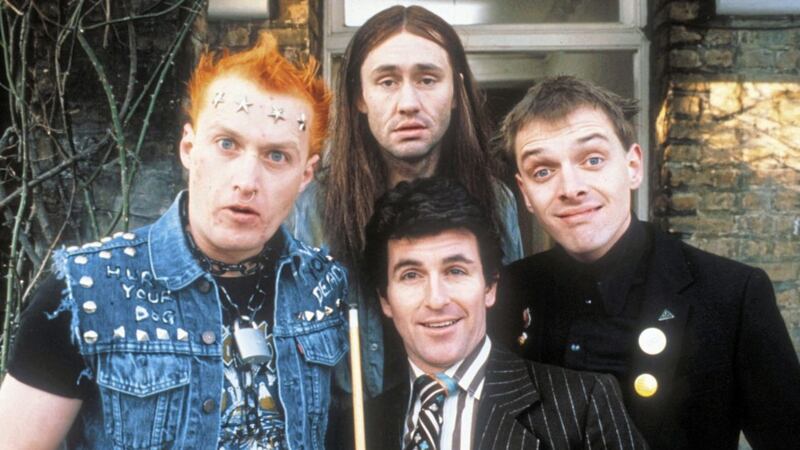FROM a hundred Hollywood movies, we know that a will is about passing your money on to your relatives.
Of course it is. But you would be amazed what other things a will can do, especially if you go about it the right way: by taking financial and legal advice from the experts.
The first benefit of a well-written and up-to-date will is clarity. Your will sets out exactly who gets what, and who does not.
If, on the other hand, you die without a will, you die ‘intestate’ and intestacy law allocates your wealth to your close family, relatives and extended family – perhaps in a manner close to, but not exactly what you wanted.
Just to show how messy this can get, we think back to the untimely death of the rock singer Prince, just 57, in April 2016. He wrote the classic album Purple Rain, as well as hits for other artists such as ‘Nothing Compares 2U’ for Sinéad O’Connor and ‘Manic Monday’ for The Bangles.
One thing he didn’t write, though, was a will. Within days, dozens of wannabe relatives came out of the woodwork looking for a nibble at his $300m fortune (there was even a new half-sister nobody knew about).
His lawyers eventually managed to narrow the list down to six, muttering that the whole thing was ‘one hell of a mess’.
The same thing happened to the comedian Rik Mayall (The Young Ones), who died in June 2014 leaving an estate worth £1.2m. With no will, his family had to spend years trawling through his estate to establish ownership. Again: ‘one hell of a mess’.
A well-written will cuts through all this confusion - but there’s more. Apart from laying out who gets what, here are some other useful things you can do with your will.
You can appoint executors, nominating one or more trusted friends or family to ensure your will is produced and your wishes are carried out. You could appoint your solicitor as executor, if you prefer.
You can nominate guardians for your children under 18. If you don’t, the court will appoint guardians for them who may not be the ones you’d have chosen.
If you have a beloved pet, you can leave it to someone you trust, giving instructions on how it should be cared for, and if you wish, you can leave that person money to cover those costs. You could also leave your pet to an animal charity such as the RSPCA. Under their ‘Home for Life’ scheme, they will try to rehome it.
You can set out your funeral wishes, saying whether you wish to be buried or cremated.
You can pass on your property, although if you own your home jointly with your spouse it passes to them automatically anyway. If you own your home as ‘tenants in common’ with someone else, you can stipulate what happens to your share.
Now comes the big surprise for many: if you are not married to your partner, and their name is not on the mortgage documents, they have no automatic entitlement to anything, and may have to go to court to try to claim. Any stepchildren would also have no automatic entitlement. You can give them an entitlement by including them in your will.
One useful variation here is to give your partner a ‘life interest’ in your home. They get to live there until they die, after which you can stipulate the house passes on to your children.
You can leave specific gifts to certain people, perhaps treasured items such as rings or jewellery, or gifts of money, for instance £1,000 to each of your children. This can often defuse family squabbles over who should get which family heirloom, and reduce stress at an already stressful time.
Now let’s go from old heirlooms to new technology.
If you are an internet user, you can leave the passwords for your online accounts - from social media to emails to photographs to banking to gaming - and again set out your wishes as to what should happen. You can keep this separate from your main will, so that the password details do not become a public document, when you die.
You can leave money to charity in your will.
You can also set up trusts to deal with particular situations. The clue is in the name: with a ‘trust’ you appoint someone you trust to administer money or property you are bequeathing to, for instance, a vulnerable individual or a person with mental health issues. The trustee will make the decisions about the money, property or assets, to make sure that person is provided for.
Making a will takes all the guesswork away, and bypasses the well-intentioned measures that would be taken under intestacy law. It makes it clear what you want to happen, and where, and how.
When it comes to your estate, clarity is security - it prevents things from going wrong, and it prevents your wealth passing to anyone you would not have intended it for.
There’s an old saying in financial circles, one which we all understand and which would have made Prince smile: “Where there’s a will, there’s a relative.’
:: Michael Kennedy and Shaun Doherty are independent financial advisers and pensions specialists, and can be contacted on 028 71886005. Further information on Facebookat “Kennedy Independent Financial Advice Ltd” or at www.mkennedyfinancial.com








